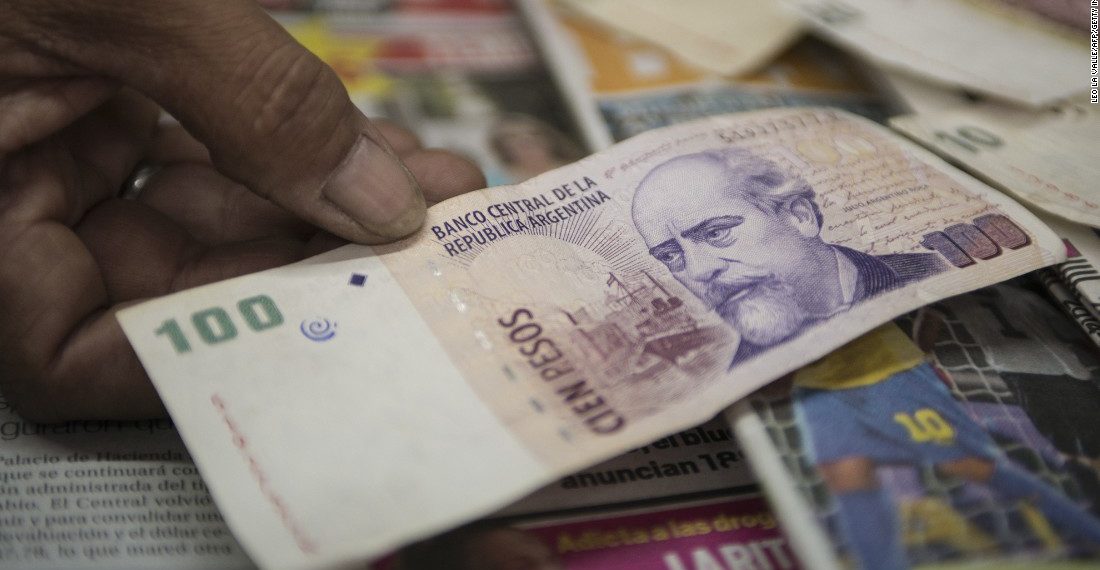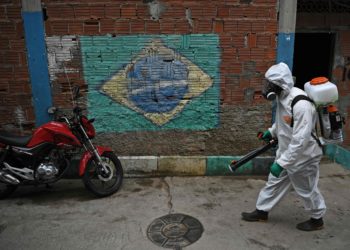Aristotle said, “Poverty is the parent of revolution and crime.” If so, then Argentina needs to brace itself.
In November 2015, Mauricio Macri, Argentina’s maverick president adored by Wall Street and the IMF, won a close run-off election on a tripartite platform of less political polarization, less crime, and “zero poverty in four years.” Ubiquitous zero poverty propaganda showered Macri rallies by election day.
In October, four years after Macri’s election, weary Argentines will return to the polls with poverty rates higher rather than lower and with no end in sight. What went wrong?
Export Tax Cuts and Currency Liberalization
Reckless, ideological policies began at once. Only one month after taking office, Macri decreed two fateful economic reforms: export tax cuts and currency liberalization.
Beef, wheat, and corn export taxes immediately stopped while the rate on soybeans, the country’s top cash crop, fell from 35 to 30 percent. For Macri, tax cuts proffered three benefits. First, tax cuts by lowering the domestic cost of food, the biggest item in households’ budgets, would reduce inflation, running around 25 percent when Macri took office. Second, incentivized farmers would boost economic growth allowing tax cuts to pay for themselves without adding more foreign debt. Third, tax cuts would boost dollar reserves because when farmers export, the dollars (or euros, yen, and yuan) go into the Central Bank which in turn pays farmers in pesos.
Macri knew the potential perils of full currency liberalization – Argentina did it back in January 2002 – and he bet on foreign investment pouring in to stabilize the peso and offset short-term public revenue losses from tax cuts.
https://twitter.com/telesurenglish/status/1095669093355659264?ref_src=twsrc%5Etfw%7Ctwcamp%5Etweetembed%7Ctwterm%5E1095669093355659264&ref_url=http%3A%2F%2Fshiny-grade.flywheelsites.com%2F2019%2F04%2F17%2Fargentina-poverty-macri%2F
Like Brazil, Argentina tends to borrow in dollars, a devaluing domestic currency risk that could trigger a debt spiral. Devaluation brings inflation as well, and nothing spooks Argentines and foreign investors more than rising inflation given the country’s history of hyperinflation and sovereign defaults.
In 2016, when currency controls were lifted, locals bought dollars, and foreign investors ignored positive media reports and stayed on the sidelines. In short, the seeds of the current crisis were planted. Three years later, at the start of 2019, the peso devalued 50 percent, inflation hit 47.6 percent, Macri had penned the largest IMF bailout loan on record (US$ 56.3 billion), and poverty reached 32 percent.
Optimism About 2019
Wall Street, the IMF, and Macri expressed optimism about 2019. With the prior year’s unexpected and unfortunate events (such as drought and the U.S.-China trade war) having passed, a bumper harvest on the way, and the IMF forcing Macri to reinstate export taxes, optimism seemed reasonable.
Yet, GDP contraction accelerated in the first quarter of 2019, and a new run on the peso forced the Central Bank to raise interest rates to 70 percent, crippling businesses and job creation. Poverty must increase in 2019, and short of an economic miracle, it will continue to do so in 2020.
Economic Troubles
Argentina’s current economic troubles were not inevitable. When Macri took over from Cristina Fernandez de Kirchner, the country had shown its resilience after the commodity boom went bust in 2011.
Record tax collection, political stability (by Argentine standards), and government redistributions via conditional cash transfer programs permitting the poor to spend more on food, education, and health helped keep Argentina’s economy growing.
Argentina’s historic Achilles heel, low tax collections, had improved significantly up to 2015 when the country’s tax revenue-to-GDP matched Brazil’s at 32 percent. At the start of the Kirchner era in 2003, no multilateral or academic observer saw Argentina matching Brazilian tax collection – it was unthinkable.
Argentina’s 2002 sovereign default left it in international financial market exile. Isolation had some benefits. Argentina had to resolve its domestic revenue problem and get creative with stabilizing the country’s currency.
Soon after Macri became president, he settled the long-standing government debt disputes with old bondholders. Then he quickly sold tens of billions of dollars in bonds, much of it in dollars. Export tax cuts balanced against reckless bond issuance and government spending increases produced economic instability that ended in a record $56.3 billion loan from the IMF in the summer of 2018.
World Bank data on government spending as a percentage of GDP shows Macri’s first two years surpassing Kirchner’s final two years. Macri keeps propping up the peso with borrowed IMF money and without regard for Argentina’s debt burden. Wrestling the peso into submission is a fool’s errand, one the IMF is more than complicit in. Ex-IMF staffer Hector Torres writes in Project Syndicate that about 90 percent of the IMF loan ($51.2 billion) “would be disbursed before Argentina’s next presidential election in late 2019.”
Run on Peso
Soon after his election, Macri removed currency controls put into place in the wake of the commodity market bust in 2011. Known as the Cepo Cambiario, the country started limiting how much foreign currency could be exchanged for Argentine pesos. They did this to prop up the peso by restricting capital flight, which is a problem among skittish Argentines worried about inflation and instability.

Once currency controls were removed, Argentines responded by exchanging Argentine pesos since this behavior was constrained for four years. The result is a run on the peso with no end in sight.
Even if Macri reinstates currency controls, he faces a steep uphill battle to get the economy growing again. He has lost considerable goodwill among his supporters, but he still has political strength, which he now needs to use to regain the country’s confidence.
Going Forward
Three potential outcomes are available to Argentina for the remainder of 2019.
First, the country could double down on the status quo and maintain the world’s highest interest rates (nearly 70 percent in April), cut public spending as negotiated with the IMF and hope the recent peso devaluation ebbs. The fact that Argentina already spent over a quarter ($15 billion) of its $57 billion IMF line of credit within a few weeks as the peso slid to historic lows suggests this is a perilous path.
Second, Argentina could dollarize following the path of Ecuador, El Salvador, Guatemala, and Panama. But these countries have small economies compared to Argentina, and more pressing, Argentines recall how fixing its currency to the U.S. dollar in the 1990s triggered an epic collapse of the economy in 2001. Dollarization slashed inflation, true, but it also produced record levels of unemployment and poverty.
Third, Argentina could reset the clock to December 2015 and reinstate currency controls, similar to Asian countries in 1997, with a forward-looking program that connects future liberalization to controlling the budget deficit.
Of these options, the last one is the most likely in 2019.
Disclaimer: The views and opinions expressed here are those of the author and do not necessarily reflect the editorial position of The Globe Post.





















